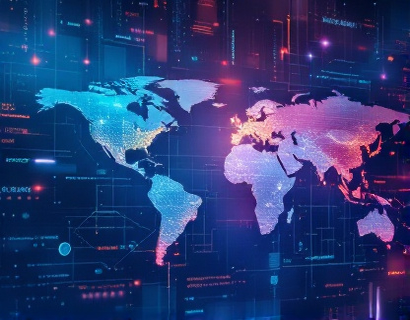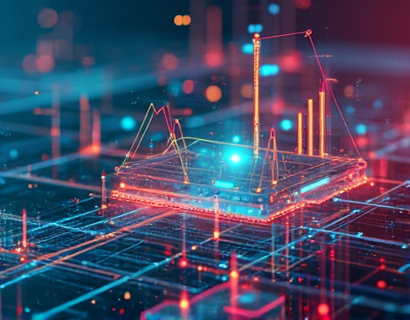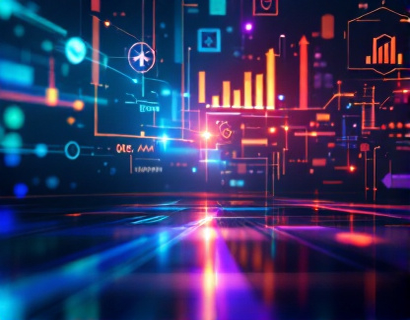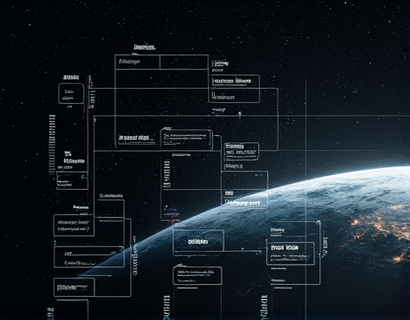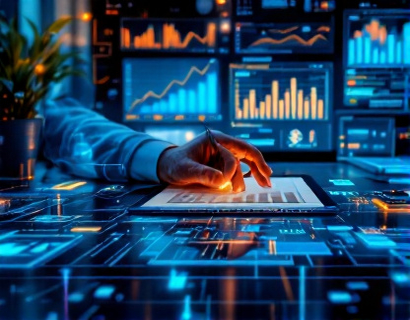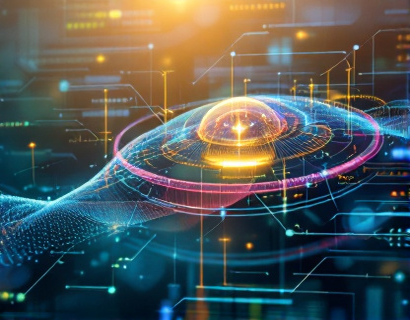Exploring the Synergy of Crypto and AI: A New Era of Digital Innovation
The intersection of cryptocurrency and artificial intelligence (AI) is giving rise to a new paradigm in digital experiences. This synergy is not just about combining two powerful technologies but about creating a transformative ecosystem that enhances user interactions and drives unprecedented growth in the tech sector. For tech enthusiasts and professionals, understanding this convergence is crucial to staying ahead in the rapidly evolving digital landscape.
The integration of AI into the cryptocurrency space has opened up numerous possibilities. AI algorithms can analyze vast amounts of data to predict market trends, optimize trading strategies, and enhance security measures. This fusion is leading to the development of smarter, more efficient, and secure financial systems. Let's delve deeper into how these technologies are revolutionizing the digital experience.
Enhanced Security Through AI
One of the most significant benefits of AI in the cryptocurrency domain is improved security. Traditional security methods often fall short against sophisticated cyber threats. AI, however, can detect anomalies and patterns that indicate potential security breaches in real-time. Machine learning models can be trained to recognize unusual transaction patterns, identify fraudulent activities, and even predict future attacks.
For instance, AI-driven security solutions can monitor blockchain transactions continuously, flagging any suspicious activity immediately. This proactive approach not only protects users' assets but also builds trust in the cryptocurrency ecosystem. As AI continues to evolve, we can expect even more robust security measures, making digital transactions safer and more reliable.
Optimized User Interfaces with AI
The user experience (UX) in the crypto space is being significantly enhanced through AI. Intelligent interfaces can adapt to user preferences, providing personalized recommendations and streamlined navigation. Natural Language Processing (NLP) enables chatbots and virtual assistants to understand and respond to user queries in a human-like manner, making the interaction more intuitive and efficient.
AI can also analyze user behavior to optimize the layout and functionality of crypto platforms. By understanding which features are most used and how users navigate through the platform, developers can make data-driven decisions to improve usability. This results in a more seamless and enjoyable experience for users, encouraging greater engagement and adoption of crypto services.
Smart Contracts and AI: A Powerful Combination
Smart contracts, self-executing contracts with the terms directly written into code, are a cornerstone of blockchain technology. When combined with AI, their potential becomes even more profound. AI can enhance the functionality of smart contracts by adding layers of intelligence and adaptability.
For example, AI can be used to dynamically adjust the parameters of smart contracts based on real-time data. This flexibility allows for more complex and nuanced agreements that can adapt to changing conditions. In the realm of decentralized finance (DeFi), AI-enhanced smart contracts can automate trading strategies, manage risk, and optimize returns, providing users with more sophisticated financial tools.
Predictive Analytics in Crypto Trading
AI-driven predictive analytics is revolutionizing the way traders approach the crypto market. By analyzing historical data, market trends, and even social media sentiment, AI models can forecast price movements with a higher degree of accuracy. This predictive power allows traders to make more informed decisions, potentially leading to higher returns.
Moreover, AI can process and integrate multiple data sources simultaneously, providing a comprehensive view of the market. This holistic approach is particularly valuable in the volatile crypto market, where timing and precision are crucial. Traders can leverage AI tools to identify entry and exit points, manage portfolios, and mitigate risks more effectively.
Decentralized Applications (DApps) and AI
Decentralized applications (DApps) are redefining the way services are delivered on the blockchain. When AI is integrated into DApps, the possibilities expand even further. AI can enhance the functionality of DApps by providing intelligent services that adapt to user needs.
For instance, AI-powered DApps can offer personalized financial advice, automate investment decisions, and even provide virtual assistant services within the blockchain ecosystem. These applications not only improve user experience but also foster greater adoption of blockchain technology by making it more accessible and user-friendly.
Enhancing Supply Chain Transparency
Beyond finance, the combination of crypto and AI is transforming supply chain management. Blockchain's inherent transparency and immutability, coupled with AI's data analysis capabilities, create a powerful tool for ensuring supply chain integrity. AI can track and analyze data from various points in the supply chain, identifying bottlenecks, optimizing logistics, and ensuring compliance with regulations.
Crypto can facilitate secure and transparent transactions throughout the supply chain, reducing the risk of fraud and errors. Smart contracts can automate payments and verify the authenticity of goods, ensuring that all parties involved have a trustworthy and efficient process. This synergy not only enhances operational efficiency but also builds consumer trust by providing transparent and verifiable information.
AI in Cryptocurrency Mining
Cryptocurrency mining, the process of validating transactions and adding them to the blockchain, is an energy-intensive task. AI can optimize this process by predicting the most efficient mining strategies and managing resources more effectively. Machine learning algorithms can analyze patterns in energy consumption, hardware performance, and network conditions to maximize mining efficiency.
Additionally, AI can help in the development of more energy-efficient mining algorithms and hardware. By simulating and testing various configurations, AI can identify the most sustainable and cost-effective solutions. This not only reduces the environmental impact of mining but also lowers operational costs for miners, making the process more viable and attractive.
Challenges and Considerations
While the integration of AI and crypto offers numerous benefits, it also presents challenges that need to be addressed. One of the primary concerns is the regulatory landscape. As both technologies operate in a relatively uncharted legal territory, ensuring compliance with existing regulations and navigating new laws can be complex.
Another challenge is the technical expertise required to develop and maintain AI-driven crypto solutions. Developers need to possess a deep understanding of both AI and blockchain technologies, which can be a barrier to entry. Education and collaboration within the tech community are essential to overcome these hurdles.
Ethical Considerations
Ethics play a crucial role in the development and deployment of AI in the crypto space. Issues such as data privacy, algorithmic bias, and the potential for misuse must be carefully considered. Transparent and ethical practices are vital to maintaining user trust and ensuring the long-term sustainability of these technologies.
Developers and organizations should adopt ethical guidelines and best practices, conducting regular audits to identify and mitigate potential risks. By prioritizing ethics, the crypto and AI community can foster a responsible and inclusive digital ecosystem.
Future Prospects
The future of crypto and AI is bright, with numerous opportunities for innovation and growth. As technology continues to advance, we can expect even more sophisticated integrations that enhance digital experiences further. The convergence of these technologies is likely to drive new business models, create new markets, and redefine how we interact with digital services.
For tech enthusiasts and professionals, staying informed about the latest developments in AI and crypto is essential. Continuous learning and adaptation will be key to harnessing the full potential of this synergy. By embracing these innovative solutions, we can unlock new possibilities and shape the future of the digital world.



